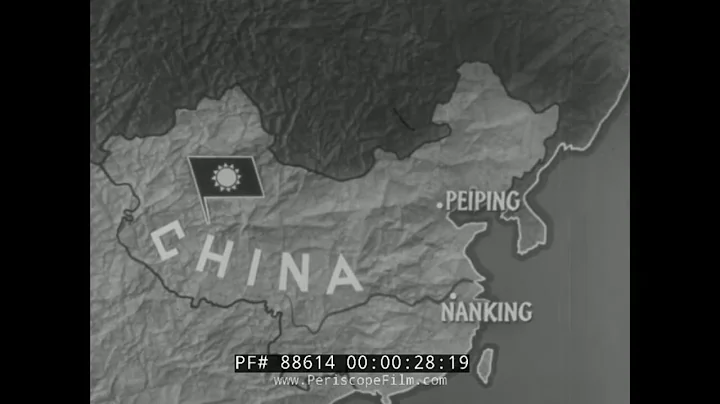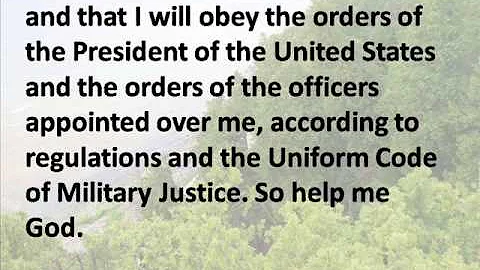Chiang Kai-shek once said that peace can alleviate the suffering of the people. Whether it is war or peace is all in their minds. This sentence does not sound problematic, but it is Chiang Zhongzheng to win over people's hearts and turn civil war A way to put the hat on our heads.
Unfortunately, his plan failed. We immediately issued a statement, Peace talks are possible, but the war criminals must be handed over first, otherwise there will be no need for talks.

Immediately afterwards, our Chinese Communist Party published a list of war criminals.
There are a total of forty-three people on the first batch of lists, including Cheng Qianfu Zuoyi, Du Yuming, Wei Lihuang, Li Zongren and so on.
Most of the Kuomintang generals were very worried when they saw their names appearing on the list. But one person was overjoyed and shouted happily, I am saved, I am saved.
In the Kingdom of Shu in the Romance of the Three Kingdoms, there were five tiger generals. However, there are also five tiger generals in the Kuomintang government. They are
tiger general Wei Lihuang, capable general Chen Cheng, loyal general Gu Zhutong, flying general Jiang Dingwen, and blessed general Liu Zhi.
It can also be seen from this that Chiang Kai-shek has great trust in Wei Lihuang, and the relationship between the two is also very good. How good is it?
Let’s understand two things first.
In 1932, Wei Lihuang was 35 years old. This year, Chiang Kai-shek mobilized 300,000 troops to attack the Hubei-Henan-Anhui Soviet Area. Wei Lihuang led his troops to capture Jinjiazhai, the military center of the Soviet Area at that time.
Therefore, Wei Lihuang became famous in the first battle and was personally summoned by Chiang Kai-shek, and Chiang Zhongzheng also changed the county where Jinjiazhai is located to Lihuang County.
From then on, Wei Lihuang gradually entered the center of power.

Wei Lihuang (1897-02-16~1960-01-17), courtesy name Junruo, his grandfather was a poor farmer for two generations. A native of Hefei County, Anhui Province (today's Baohe District), he was a senior general during the Republic of China and one of Chiang Kai-shek's "Five Tiger Generals".
During the Wuchang Uprising in 1911, Wei Lihuang, who was under 15 years old, enlisted in the new army. After the setback of the Great Revolution, he changed his route to Wuhan, joined the Hunan Army, and became a professional soldier.
was later introduced by democratic revolutionaries and went to Shanghai to join Sun Yat-sen's crusade against Yuan Shikai team and became Sun Yat-sen's bodyguard. Wei Lihuang repeatedly made outstanding achievements during the Northern Expedition, becoming the youngest "little battalion commander."
On December 12, 1936, the Xi'an Incident broke out, and Chiang Zhongzheng was detained by Zhang Xueliang and General Yang Hucheng.
Everyone knows this. In fact, Wei Lihuang was detained together with Chiang Kai-shek. During the following period, the two people can be said to have shared weal and woe and established a very strong friendship.
It was not until the Xi'an Incident was peacefully resolved that the two were released together.
Then the Anti-Japanese War broke out, and Wei Lihuang became the deputy commander-in-chief of the Second Theater Zone.

It is undeniable that Chiang Kai-shek is also a very strategic person.
However, he appointed Wei Lihuang as the deputy commander of the Second Theater, but the result exceeded Chiang Zhongzheng's original intention. Why?
Because this official position was to govern the Eighth Route Army, Jiang Zhongzheng originally thought that Wei Lihuang was the person he trusted most, and he would be most at ease letting him manage the Eighth Route Army. However, after Wei Lihuang took office, he was quickly impressed by the Eighth Route Army's courageous fighting spirit. Impressed, he began to admire him. Coupled with the convenience of his position, Wei Lihuang often contacted the generals of the Eighth Route Army, and the relationship between the two parties became increasingly close.

1937 years 8html May 25 Red Army adapted to establish National Revolutionary Army Eighth Route Army (hereinafter referred to as " Eighth Route Army ") , one month later was renamed 18th Group Army (hereinafter referred to as "Eighteenth Army " "), which belongs to the second theater sequence commanded by Commander-in-Chief Yan Xishan and Deputy Commander-in-Chief Wei Lihuang.
Under the complicated situation, Yan Xishan handed over the combat command to the former enemy commander-in-chief Wei Lihuang. This made Wei Lihuang the nominal "superior" of the Eighth Route Army.
In 1938, Wei Lihuang allocated one million rounds of ammunition, 250,000 hand grenades, , and 180 boxes of canned beef and summer clothing for three divisions to the Eighth Route Army in one go. It is very, very important to the Eighth Route Army. supplies. When arriving at the Eighth Route Army station, Chairman Mao also set up a reception group to welcome Wei Lihuang.

Mao Zedong personally hosted a luncheon. During the dinner, Mao Zedong broke his customary drinking habit, and the two took 8 photos together. Wei Lihuang regarded his photos with Mao Zedong and other Communists as treasures, and he carried them with him for a long time.
However, none of Wei Lihuang's photos could escape the eyes and ears of Chiang Kai-shek. A senior general liaison officer reported that Wei Lihuang was suspected of being "pro-communist". Chiang sent people to investigate. Although there was no accurate basis, he still had suspicions. Chiang told people: "The generals of the guards are fighting and do not know the politics."
19411941 years5html5html, Chiang Kai-shek was defeated in the Battle of Zhongtiao Mountain on the pretext of defeat, and he was appointed as the commander-in-chief of the First Theater Command. With the title of general, he was ordered to receive army pay to support his old mother in Chengdu.
Zhou Enlai once said to Wei Lihuang: "You have suffered from us." For Wei Lihuang, the greatest comfort was this.
Just one year later, the Chinese Expeditionary Force entered Myanmar to fight. Due to the defeat in the battle, the Burma Highway was completely cut off by the Japanese army. At that time, the Burma Highway was the Kuomintang's lifeline to obtain international rescue, and it had to be opened again no matter what. Jiang Zhongzheng thought over and over again and decided to invite the tiger general Wei Lihuang to come out.

Frankly speaking, there are many talents in the Kuomintang, but there are not many generals who can fight tough battles and win them. And Wei Lihuang was one of them. After coming out of the mountain, Wei Lihuang led his troops to launch the Songshan Battle.
In nearly a hundred days, Wei Lihuang completely wiped out a Japanese company of 4,000 men at the cost of 7,000 casualties. The Japanese army called this battle a jade-breaking war.
Because all the Japanese troops were annihilated, it is undeniable that this was definitely a great victory in the history of the Anti-Japanese War. After , Wei Lihuang finally succeeded in opening up the China-India Highway and became famous at home and abroad.

In the autumn of 1943, Chiang Kai-shek invited Wei Lihuang to Chongqing, restored him to the rank of general, and appointed him as the commander-in-chief of the Chinese Expeditionary Force. In May 1944, Wei Lihuang commanded the Chinese Expeditionary Force to conduct a large-scale counterattack.
Wei Lihuang went to the front line to investigate in person. His footage was shot by a US military reporter and published in " Time Magazine ", which became an instant hit.
After the victory of the Anti-Japanese War, Wei Lihuang lived idle for Chiang Kai-shek. Chiang Kai-shek wanted to start a civil war and funded his overseas visits. Before leaving, Lihuang took charge of the old department and began to prepare for the long coming. He also took advantage of the opportunity of going abroad to contact the Chinese Communist Party through relatives overseas.
In November 1946, Wei Lihuang and four others set off from Shanghai to the United States via Japan. Wei Lihuang left the United States for Europe in the spring of 1947. When he first arrived in the UK, his wife Han Quanhua wrote a letter to his French aunt and nephew Wang Dezhao . Wang is a student leader studying in France to advance China and has secret contacts with the Chinese Communist Party. After arriving in Paris, Wei Mi made an appointment with Wang Dezhao to get straight to the point and asked him to contact the Chinese Communist Party as soon as possible.
Wei and Wang hate each other.
Wei Lihuang wrote to the Chinese Communists in the letter. The main content is: I am ready to end the civil war as soon as possible, resolutely stand on the people's stand, cooperate with "relevant parties", and in view of the current harsh environment, I am willing to keep it absolutely confidential. Soon Wang Dezhao informed Wei Lihuang's "relevant parties" that the other party hoped that Wei Lihuang would choose the opportunity to do things that were beneficial to the revolution.

did not exceed Wei Lihuang's expectations. In October 1947, Chiang Kai-shek urged Wei Lihuang to return to the country. After Wei Lihuang arrived in Shenyang, he immediately received a secret message from Wang Dezhao from Paris - "The previous Paris messages have arrived at their destination, and the other party has already replied, saying that they can take advantage of the situation."
It is a historical mystery that Wei Lihuang held the important position of "suppressing the general" but did not start an uprising. Only those who know the inside story will understand that it is difficult for Wei Lihuang to dispatch troops and generals with full authority. Even the surrounding security regiments are difficult to direct. Moreover, the major actions taken by Wei Lihuang will be secretly reported to the spy at all times. Chiang.
Therefore, after Wei Lihuang arrived in the Northeast, other than asking for reinforcements, he could only stand still, deliberately delaying the opportunity for war.
1948html10th of May 2, Chiang Kai-shek flew to Shenyang to convene divisions with high-level and above-level officers to give lectures to soldiers, and cursed the generals in the Northeast to avoid war passively.
Chiang Kai-shek also left Wei Lihuang alone and came to the scene in person.
At this time, the enemies trapped in Jinzhou were eager for reinforcements from Shenyang, but Wei Lihuang remained unmoved. After the People's Liberation Army occupied Jinzhou on October 14, more than 100,000 people under Kuomintang guard Fan Hanjie were captured.

From to Changchun, quickly collapsed.
On December 25, 1948, the CCP announced that there were forty-three Kuomintang war criminals, with Chiang Kai-shek ranking first and Wei Lihuang ranking thirteenth.
In fact, the CCP put a lot of effort into this move. Its intention was to safeguard Wei Lihuang’s interests, otherwise it would intensify Wei Lihuang’s suspicion of being a “communist”.
Because of this, Wei Lihuang avoided death and was put under house arrest by Jiang in Nanjing. Wei Lihuang, who escaped from the clutches of the devil and passed by Shanghai, arrived in Hong Kong on a British ship. This dangerous experience created another legend for him.
Until 1960, the former "number one war criminal" died of illness in Beijing, and he was buried in the Babaoshan Revolutionary Cemetery in Beijing.
Source: Xinhuanet





















